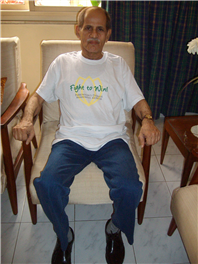Parkinson’s support groups promote a focused social interaction in which a small groups of people with Parkinson’s meet regularly with a facilitator. To share information,address common problems, improve coping skills and foster camaraderie. The very act of listening and sharing offers the opportunity to function more effectively and continue to grow emotionally
Individuals respond to a Parkinson’s diagnosis with a variety of emotions,disbelief,anger fear embarrassment,depression and anxiety among them.Each participant is unique,as is the nature of that individuals disease.Each brings to the table different coping skills and life’s experiences. Watching others cope well with similar problems often instils hope.
Most participants leave the group far more knowledgeable about their particular symptoms and challenges than when they entered.This makes them increasingly able to help themselves and others
The process of helping others is a powerful therapeutic tool, that greatly enchances feelings of self worth.In addition caregivers in the group not only learn about Parkinson’s disease but receive support for their efforts and share coping strategies with one another and with those for whom they care
No ones life unfolds exactly as they’d imagined No one puts support groups on his bucket lists of things to do .Our lives are connected by a thousand invisible threads. The people we meet at Parkinson’s support groups are connected by some of those previously invisible threads in support groups these unique threads are woven together as we share our stories and to appreciate more fully the deeper dimension of giving and receiving
Attending a group for a few sessions should give you all the information you need to make an informal choice If a support group does not feel right find another but don’t give up until you find the right fit
Ronald Rodrigues
